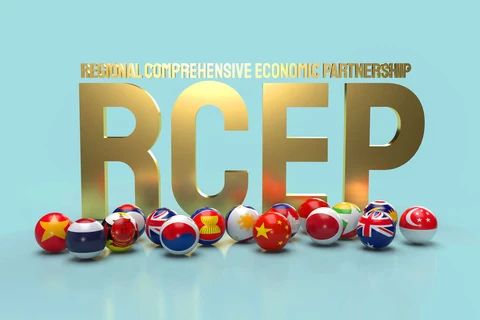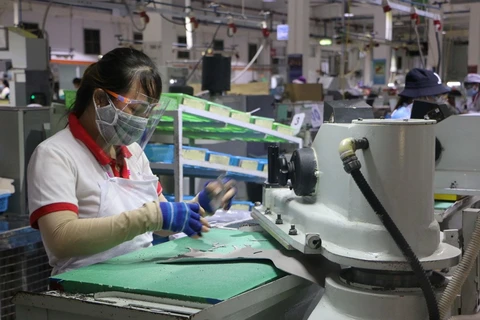Hanoi (VNA) - With the Regional Comprehensive Economic Partnership (RCEP) agreement taking effect January 1, 2022, Japan and other member nations expect to revitalise the pandemic-hit economy through free trade in the economic bloc, regarded as the world's largest, covering about a third of the global economy, according to Japanese news agency Kyodo News.
The agency cited a report by the United Nations Conference on Trade and Development as saying that Japan would benefit the most from RCEP tariff concessions, largely because of trade diversion effects.
The Japanese government predicts the trade pact will help push up the country's real GDP by 2.7 percent and add some 570,000 jobs.
Japan's annual exports are expected to climb by about 20 billion USD, equivalent to almost a 5.5 percent increase from its 2019 exports to other RCEP members.
The news agency quoted Chief Cabinet Secretary Hirokazu Matsuno as saying in November that "It will contribute to the economic growth of Japan and the region. We will play a leading role in building an economic order based on rules and ensuring participating nations abide by the rules."
RCEP was signed between 10 ASEAN members and five partners of China, Japan, Australia, New Zealand and the Republic of Korea in November 2020. With a market of about 2.3 billion people accounting for around 30 percent of the global population, the RCEP is considered the current largest free trade agreement in the world. RCEP countries also make up 33.6 percent of the global GDP and 30 percent of the global trade./.
The agency cited a report by the United Nations Conference on Trade and Development as saying that Japan would benefit the most from RCEP tariff concessions, largely because of trade diversion effects.
The Japanese government predicts the trade pact will help push up the country's real GDP by 2.7 percent and add some 570,000 jobs.
Japan's annual exports are expected to climb by about 20 billion USD, equivalent to almost a 5.5 percent increase from its 2019 exports to other RCEP members.
The news agency quoted Chief Cabinet Secretary Hirokazu Matsuno as saying in November that "It will contribute to the economic growth of Japan and the region. We will play a leading role in building an economic order based on rules and ensuring participating nations abide by the rules."
RCEP was signed between 10 ASEAN members and five partners of China, Japan, Australia, New Zealand and the Republic of Korea in November 2020. With a market of about 2.3 billion people accounting for around 30 percent of the global population, the RCEP is considered the current largest free trade agreement in the world. RCEP countries also make up 33.6 percent of the global GDP and 30 percent of the global trade./.
VNA
























